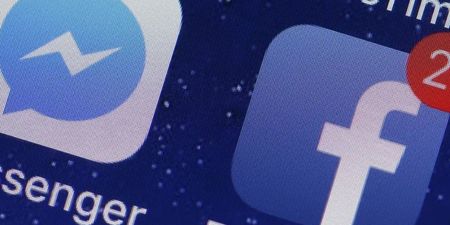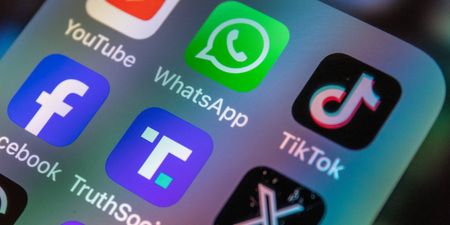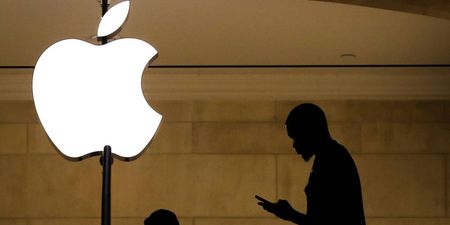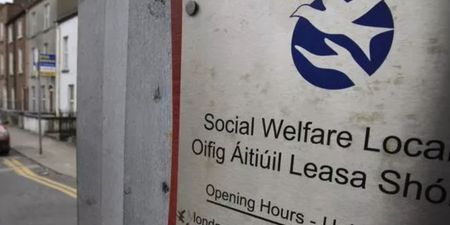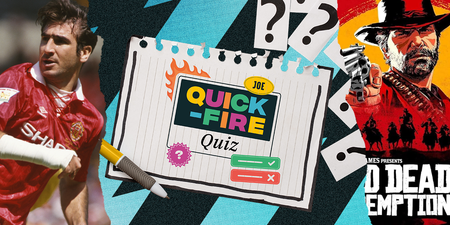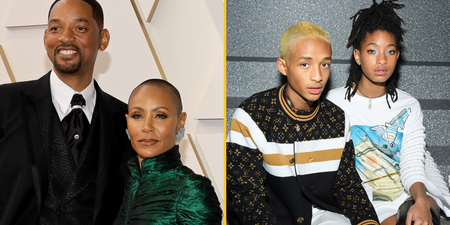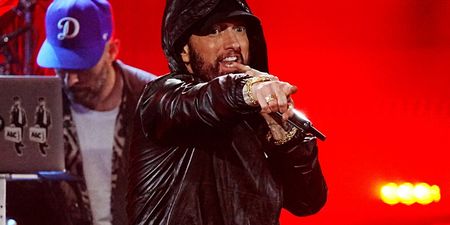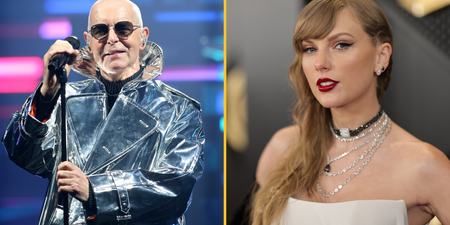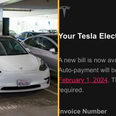“This is an emergency.”
That’s how Liz Carolan, a founder of Ireland’s Transparent Referendum Initiative, concludes our conversation about Facebook and Google’s drastic measures this week to suspend campaign advertisements pertaining to the upcoming Eighth Amendment referendum.
There is agreement among the experts that we should not be trusting private companies like Facebook to self-regulate. Carolan tells me: “We can’t wait for private companies to act when it comes to our sovereignty and our democracy.”
The disturbing fact remains that, however effective their measures may be, Facebook and Google have openly addressed the reality that the integrity of Irish democracy is under threat long before the Irish government has.
Carolan goes into great detail on the dangers posed by Ireland’s “dark ad” problem.
“We’ve had people reporting to us that everything they’ve looked at online had referendum-related ads around it. That advertising content, that spending, the messaging, the traceability… we have no rules around that.”
She notes that much of the campaigning that stirs outrage in the public sphere, such as pictures of terminated pregnancies, can be targeted at people privately through digital advertising.
“Why this area needs more action is that a lot of these ads are happening out of the public domain and out of the public discourse. They’re not seen by everybody, they’re only seen by small groups. If a poster goes up, or let’s say when people are protesting outside maternity hospitals with graphic images, the OB-GYNs, the politicians, the media, they all kick up a fuss.”
“We have been seeing things like that targeted at women online, consistently. When it’s happening in private spaces like that, it’s hard to have the same scrutiny of it.”
The analogy is actually pretty simple. When a politician or a canvasser comes to your doorstep and tells you a lie, you can see their face. You can see who they’re working for. If they say something sounds suspicious then you can take them to task.
Digital campaigning through Facebook and Google AdWords allows campaigns (or anyone with enough money, really) to slip secret notes under your door, phrased in a way that’s designed to appeal exactly to your beliefs, couched in the ways that you are least likely to question. And if you do have questions? Too bad, because there’s no way to ever find out who left the note there in the first place.
Carolan talks me through the almost shockingly laissez-faire process for buying a Facebook ad.
“If you want to do a Facebook ad, you start a page, you give it whatever name you want, you put that up. You don’t have to say who’s behind it, you don’t have to give any information, no contact details, no admin details. You design your ad, whatever you want to say.”
But surely there must be some limits on what Facebook users can pay to put on our Newsfeeds?
“Facebook have some rules — when we flagged it with them, they have taken down an image of a dead foetus in a toilet. That seems to be where the line is,” Carolan says.
As for situations that may be less clear-cut, Carolan tells me that Facebook seem content to operate in the grey areas.
“When we’ve flagged other things with them, they’ve told us that they ‘don’t get into deciding what’s true or not’. So you can kind of say whatever you want. You put that ad out. You pick the community you want to target. So, if it’s younger women in Longford or middle-aged men who are into GAA and who may be into Irish nationalism, you target them with that ad. But unlike a poster on a lamppost or a billboard on a wall — these ads can be hidden from the public, and they can’t be traced.
“If projects like ours don’t pick up that ad or if someone who sees it doesn’t screengrab it and try to put it into the public domain, that ad can reach thousands of people and then it can vanish. That’s a big problem, because we have no way of knowing if these are coordinated efforts, are they strategies of market segmentation, data analysis and then bombardment of key undecided voters with messages that they know will resonate based upon their research?”
Carolan highlights the government’s lack of preparedness: “The only way we would know that is if we had a full permanent list of all the pages and all the ads that are being shown, which is a minimum threshold of transparency really and it’s what we’re pushing for longer-term in terms of a legislative response to all this… which obviously won’t happen in the next two weeks.”
Facebook, whose brand has become synonymous with advertising scandals since the Cambridge Analytica fiasco, was the first to step into the bloody fray this week — nixing all digital ads from sources outside of Ireland.
“This change will apply to ads we determine to be coming from foreign entities which are attempting to influence the outcome of the vote on May 25,” the company wrote in a statement on Tuesday. “We will also be using machine learning to help us with this effort to identify ads that should no longer be running.”
Google soon followed in Facebook’s footsteps but went one further — suspending ads of any kind pertaining to the Eighth Amendment. This includes video advertisements that roll before YouTube videos, and use of the AdWords service — which is where most of the ads on any given website come from. AdWords represents 96% of Google’s total revenue.
Similarly, Twitter will not be allowing paid advertisements of any kind when it comes to the referendum, saying that such ads would be in breach of their Health and Pharmaceutical Products and Services policy. Twitter restricts the promotion of health and pharmaceutical products and services — which specifically includes abortion clinics and abortion advocacy.
Ireland’s Eighth Amendment referendum is just the latest instalment in a long line of scandals that centre around the misuse of social and digital media for the purposes of influencing democratic process. The effects of fake news and misleading social media posts by bad actors were highlighted during the 2016 American presidential election. As propagandists become more adept at manipulation and social media giants start to devise counter-measures, the friction threatens to burst into all-out war.
By taking action on concerns around election integrity, Facebook and Google have confirmed that Ireland too has become a target for that same brand of election interference.
“What’s the definition of a free and fair election?” asks Gavin Sheridan, the CEO of Vizlegal, cutting to the chase.
“We don’t know how much is being spent, we don’t know by whom, we don’t know where the money came from. We don’t know anything really. It’s a fundamental danger. If you want to saturate the market with ads you can, if you have the money.”
There are no limits on what can be spent on online campaigns in Ireland. Unlike the UK, where binary referendums see spending limits placed on both sides, Irish referendum campaigns can flood cyberspace with no end of election material. This means that not only is there currently no accountability for these ads, there is also no limit on their quantity.
Unless corporations, governments and civil society alike can get a grip on dark ads, then elections and referendums everywhere will be at the mercy of the deep pockets of external actors. This effectively compromises the self-determination of nations like Ireland. At its worst, we are looking at a coup d’etat by Facebook status. Democracy worldwide would be in jeopardy. Ireland’s Eighth Amendment referendum is currently an incubator for that threat.
In this very moment, how prepared are we to cope with actors who will misuse the digital sphere in order to conduct secret, individualised political campaigns? Campaigns with no regulation, no transparency and no accountability?
Fianna Fáil TD James Lawless introduced the Social Media Transparency bill in December 2017. His pre-amble to the bill warned that the rules and safeguards that regulate traditional election campaigning had no online equivalent. Campaign fund caps, labels on posters revealing where they were printed and who was behind them, donation disclosures… none of these rules apply in the wild, wild west of the worldwide web.
Key provisions of the bill include:
- The requirement for a disclosure statement on any online political advertising
- The disclosure statement is similar to that already on printed flyers and election posters
- The disclosure statement will state exactly who published and sponsored the post and the target audience
- The social media platforms will be required to capture this information when the ads are purchased
- Failure to provide accurate or truthful information in the disclosure statement will be an offence
- Separately, deliberate usage of multiple fake accounts, for political purposes, shall be an offence.
But as of May 12 this year, Ireland has no laws to effectively regulate dark ads.
Lawless tells me: “The announcements are welcome but they are temporary. They’ll be lifted, presumably, on 26 May. I welcome it, but it would have been far better all around if my legislation, that I proposed over six months ago, if the government had actually gotten onboard, took its head out of the sand, realised the warnings and threats were for real, we wouldn’t be in this mess.”
Much like Liz Carolan, Lawless’ primary concern is with the opacity of digital ads.
“The nightmare scenario is the great unknown,” Lawless says, highlighting the lack of transparency of dark ads.
“We don’t know how much of this is going on, we don’t know how many dark ads are out there, we don’t know what they’re saying, we don’t know what messages are being carried, we don’t know what weight they have with the electorate, how many people are being influenced by them.”
Where political campaigning was once face-to-face, demanding more than some degree of humanity, the Irish electorate is now facing a curtain weaved together from technology beyond the understanding of most.
While the dark ads are not technically illegal, Lawless was clear that they are at least in breach of the spirit of Irish law.
“It flies in the face of all our electoral laws to date, because all the electoral laws we have on the Statute Book are written with the key principle that everybody gets to play the same game by the same rules. That’s why we have rules on campaign spending. That’s why you can’t buy an ad on TV. It would be unfair.”
At present, Ireland’s internet may as well be international waters. These laws can be brushed aside — and as social media becomes more and more a source of information, the effects could be catastrophic.
However, Sheridan doesn’t think that Lawless’ bill goes far enough. “We’re not at the races,” he says of our legislation. “The Lawless amendment is fine and it’s well-intentioned but it’s an amendment to the existing electoral law. I think we need root and branch reform of how electoral systems work across the board.”
“We’re not even at square one yet,” Sheridan tells me. “This issue is going to get more pressing, the more time that passes. Campaigns will get more sophisticated. The data available to be mined will increase.”
Essentially, cyberspace is a minefield and we’re like a little kid on Windows 95, clicking random grey squares without any real idea of how to play Minesweeper.
The new kinds of threat posed in the digital sphere were seen in full-flight this week when the Together For Yes crowdfund initiative was, according to the Yes campaign, shut down on Thursday evening for 30 minutes after the company hosting the website was cyber-attacked by an unknown Irish-based entity.
The shutdown was achieved through a DDoS attack, which usually sees the victim’s web page flooded with superfluous traffic, overloading the system and preventing legitimate access from being achieved. Together For Yes said in a statement that the attack occurred during peak time for donations.
DDoS attacks. Data mining. Dark ads. This is the new normal when it comes to election campaigns.
Given the unprecedented and unexpected nature of Facebook and Google’s announcements, a backlash was to be expected. In this case, it came from the No side of the referendum.
In a Wednesday afternoon press conference, the Save The 8th campaign lambasted Google’s decision to suspend advertising, arguing that this move effectively “rigged” the referendum.
James Lawless can’t see the sense in their complaints. “I don’t understand it, frankly, because either side can run ads. Who’s afraid of transparency?” he asks. “Transparency should not be a one-way street. I don’t have that much time for the Save The 8th argument, because transparency is a level playing field.”
He does express the belief, however, that Google’s total ban on ads is “going a bit far” and estimates that Facebook’s ban on ads from outside of Ireland is “closer to what’s needed.”
Facebook’s statement on Tuesday touted the company’s relationship with Ireland’s Transparent Referendum Initiative, who will “notify [Facebook] if they have concerns about ad campaigns”. Nevertheless, Liz Carolan does not believe that companies like Facebook are going to fix this problem.
“There are people in Facebook’s office in Dublin, they’re Irish voters and citizens who care about this stuff themselves. But their primary responsibility is to their shareholders, it’s not to the electorate. The people who should be protecting the electorate from manipulation of a democratic system shouldn’t be a private company. It should be our government and our elected representatives.”
Sheridan agrees, saying of Facebook’s partial ban on referendum ads: “It’s PR. It’s reactive. It’s marketing. They want to be seen to be doing something that is basically none of their business. Since when is it Facebook’s job or Google’s job to decide what’s going on in an election or referendum campaign? But that means we have to legislate. We’re outsourcing our democratic processes to private companies.” The government did not respond to a request for a comment.
Elections are the means by which democratic nations set their course. They are the essence of our autonomy. If we cannot trust our elections to be carried out unspoiled by foreign interests, then we are in unimaginable danger.
It doesn’t take a wild imagination to envisage pro-Brexit forces in the UK buying digital ads in order to undermine Irish political parties who’ll hold them to account over trade or the Northern Ireland border over the complicated coming years. Much is made over Trump’s weak stance on Russia — unless “dark ads” are effectively combatted, it is entirely conceivable that Ireland too could find its government representing the interests of external forces.
If comprehensive political campaigns can be bankrolled from outside of Ireland then strong bulwarks must be erected in order to stem any chance of proxy laws being enacted or proxy officials being elected into Dáil Éireann. We can’t rely on Facebook and Google to provide that protection for us.
As Carolan tells me: “That two global companies have introduced measures that they’ve never introduced anywhere in the world before, two weeks out from the referendum, just signals to me that this is an emergency.”
Sheridan has come to the very same conclusion: “If we don’t sort this out, we’re jeopardising the entire republic.
“It might be the case that political parties and TDs don’t want to change the law themselves because they want to exploit these technologies in order to win elections,” he speculates. “There tends to be an attitude that ‘democracy is ours to control, not necessarily the people’s’. They might have a vested interest in not changing.
“But, essentially, they could all be targets. They could all be targets of disinformation or misinformation or outspending.”
If Carolan finished our discussion on a note to give you pause, James Lawless’ closing warning would give you chills: “These platforms are so intimately aware of your likes, dislikes, your hopes, fears, dreams… they can manipulate you to the highest degree.”
This is an emergency.
LISTEN: You Must Be Jokin’ with Conor Sketches | Tiger Woods loves Ger Loughnane and cosplaying as Charles LeClerc






